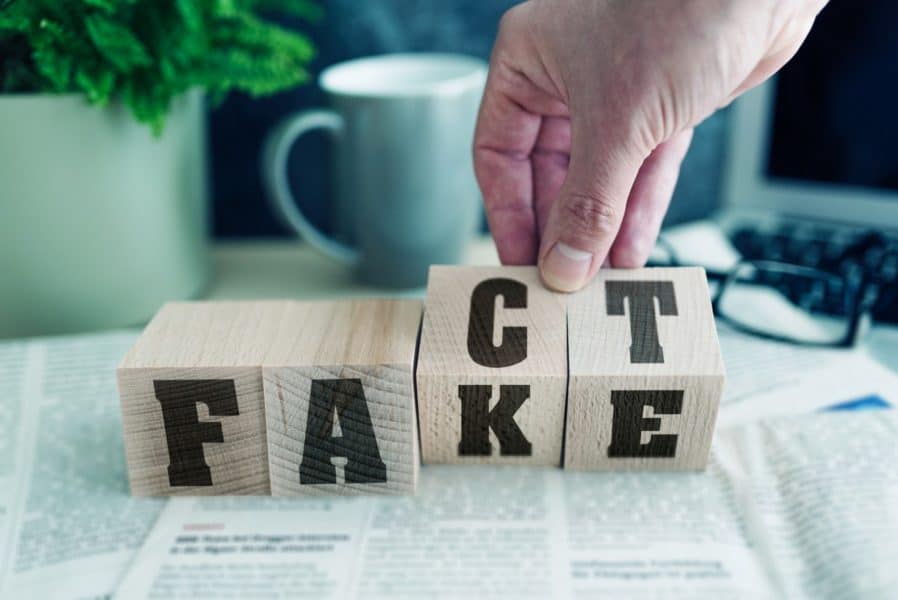Fact-checking works to reduce false beliefs across the globe, according to a new study conducted in four countries.
Researchers found that fact-checking worked with little variation in Argentina, Nigeria, South Africa and the U.K., and the positive effects were still detectable two weeks later.
Even more encouraging, there was no evidence of a “backfire” effect of fact-checking, said Thomas Wood, co-author of the study and assistant professor of political science at The Ohio State University.
“When we started doing misinformation work about five years ago, it was the consensus that correcting misinformation wasn’t just ineffective, but that it was aggravating the problem and making people more entrenched in their false beliefs,” Wood said.
“We found no evidence of that in these four countries. What we did find was that fact-checking can be a very effective tool against misinformation.”
Wood conducted the study with Ethan Porter, assistant professor of media and public affairs at George Washington University. The research was published Sept. 6, 2021 in the Proceedings of the National Academy of Sciences.
The researchers worked with fact-checking organizations in the four countries that are part of the International Fact-Checking Network, an organization that promotes nonpartisan and transparent fact-checking. They evaluated five fact-checks that were unique to each country and two – regarding COVID-19 and climate change – that were tested in all four countries.
The fact-checks in each country, done in September and October 2020, covered a broad range of misinformation, including local politics, crime and the economy.
Some of the 2,000 participants in each country received only the misinformation, while others received the misinformation followed by the actual corrections used by local fact-checking organizations in response to misinformation.
They then rated how much they believed the false statement on a scale of 1-5.
In each country, members of a control group did not receive any misinformation or corrective statements, but simply rated how much they believed the statements.
When compared to misinformation, every fact-check produced more accurate beliefs, while misinformation didn’t always lead to less accurate beliefs when compared to the controls.
Results showed that fact-checks increased factual accuracy by .59 points on the five-point scale. Misinformation decreased factual accuracy by less than .07 on the same scale.
“Misinformation is far less persuasive than corrective information, by and large,” Wood said.
In three of the countries (South Africa, Argentina and the U.K.), the researchers returned two weeks later and asked participants how much they believed the false statements they evaluated earlier. Results showed that the positive effects of fact-checking were still robust two weeks later.
Two topics were tested in all four countries. One involved climate change, testing how much people believed the false statement, commonly shared at the time, that there were two years of record-breaking global cooling between 2016 and 2018. Another tested the false statement, which was widely shared near the beginning the COVID-19 pandemic, that gargling saltwater would prevent infection with the coronavirus.
Results showed that exposure to the climate change misinformation did not uniformly lead to people being less accurate on that issue.
But the misinformation regarding COVID-19 did lower accuracy in three of the four countries and had the largest misinformation effects found in the study. However, the fact-checks did help boost accuracy on this issue.
All participants also completed measurements of their political beliefs, to see if that influenced how they were swayed by fact-checks.
Results showed that participants’ reactions to fact-checks were connected to their beliefs – but in no case did an ideological group become more inaccurate because they were exposed to a correction.
“Some corrections didn’t improve the accuracy for some ideological groups, but they didn’t provoke any instances of backfire,” Wood said.
“Overall, the beliefs of adherents of the left, center and right alike were made more accurate by fact-checks, even when topics were politically charged.”
Wood noted that studies suggesting that fact-checking can backfire were mostly done in the United States and countries like it – what researchers call WEIRD samples, for Western, Educated, Industrialized, Rich and Democratic.
People in countries with these WEIRD populations, where political ideology plays a strong role in beliefs, may behave somewhat differently from those in other parts of the world. In fact, in this new study, the corrective effects of fact-checking were smallest in the U.K., which is the most WEIRD country of the four, Wood said.
“People in less ideological countries are going to be more factually adherent,” he said.
But still, Wood emphasized that this study showed that fact-checking was valuable in four countries that were diverse among racial, economic and political lines.
“Fact-checking is a powerful tool,” he said.
These results will be especially important as the COVID-19 vaccines become more accessible in places like Africa, he said. While dangerous misinformation about vaccine safety and efficacy may also follow there, this study suggests a rigorous program of fact-checking on social media and elsewhere could be effective at battling falsehoods.
“These populations may be even more receptive to corrections of misinformation than those from richer, more industrialized countries where ideology is more important,” Wood said.


